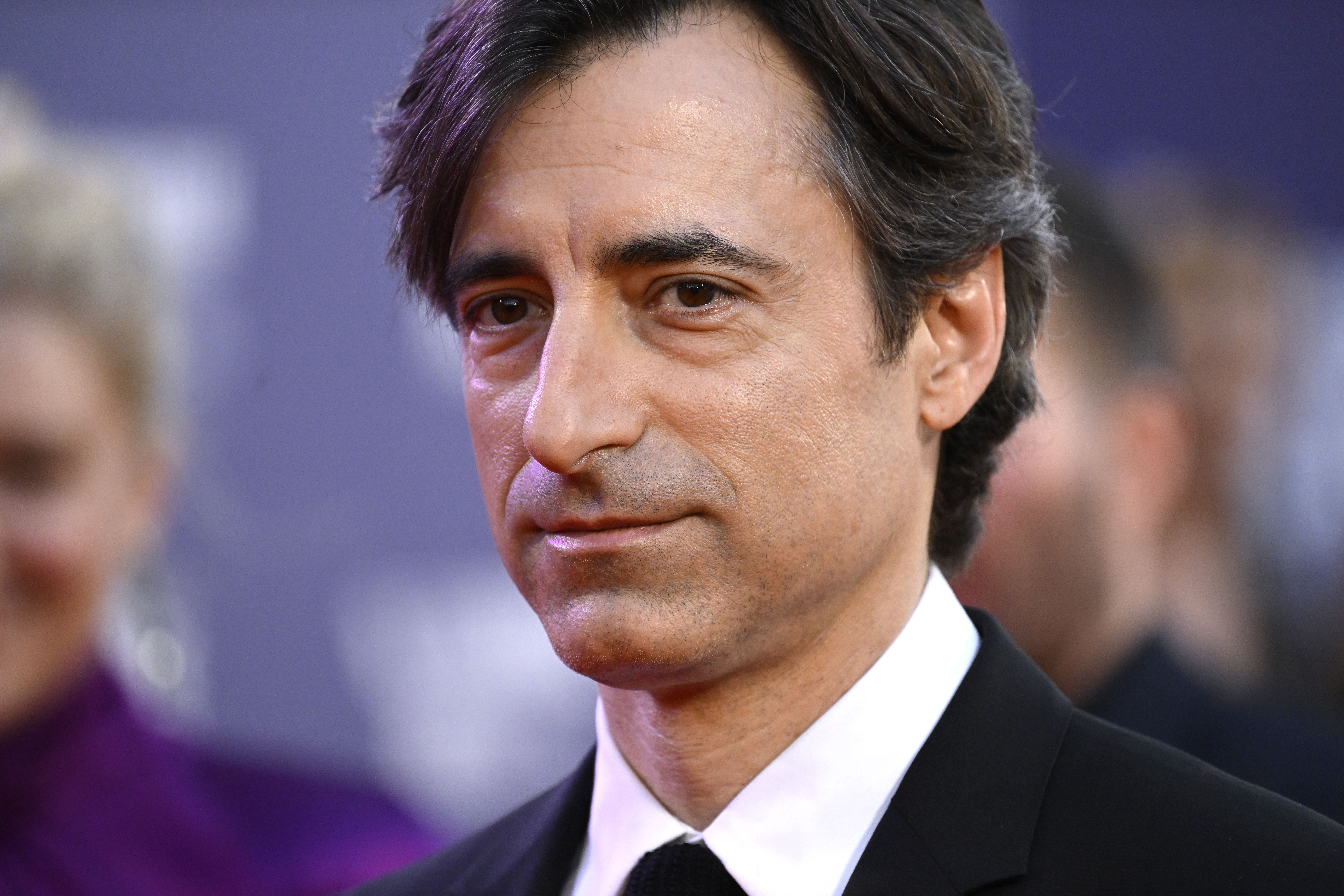Her presence is singular. The moment the celluloid begins to reel, an inner tiger is unleashed. To watch her is to be enthralled by her — the ferocious eyes, hair like fire, a near-permanent smirk. Decade after decade, audiences have remained entranced by the intensity of her performances, be it controlled and simmering or wild and uninhibited. You get the feeling that she indeed is the keeper of true carnal knowledge, to borrow a title from her filmography. Still, at 84 years young, there is no one else like Ann-Margret. This Labor Day weekend, fans have the opportunity to look back at her career and admire all she is at the Cinecon Film Festival, which will honor her with their Legacy Award in Los Angeles.
Consider those opening and closing moments of her breakout “Bye Bye Birdie,” added as bookends in post-production by director George Sidney, where the exuberant actress sings straight to camera, a sole figure against a blue backdrop, begging the film‘s titular character no to go “away-a-a.” It’s one of those few moments in the cinematic canon where a persona leaps off the screen and an icon is born.
Before “Birdie,” she was already well on her way to stardom. Born in Sweeden but mostly raised in America, her first movie, “Pocketful of Miracles” in 1960, put her opposite Bette Davis, whose daughter she portrayed.
In an exclusive interview with IndieWire, Ann-Margret recalled that Davis told her, “I want you to look your very best. This is your first time close up. I want you to look the very best that you can.”
“State Fair” with Pat Boone followed, establishing her musical chops in the last gasp of the Hollywood singing spectacle. She still sees Boone, now 91, by the way — “As a matter of fact, last week,” she said.
Cast opposite Elvis Presley — and dubbed the female Elvis — she became electricity ignited. A series of hits followed, each of which seemed like adjectives meant to describe their star: “The Pleasure Seekers,” “The Tiger and the Pussycat,” “R.P.M.,” and — most significantly — “Kitten With a Whip.” She released hit records, and she started going on USO tours, too, which she counts as her most significant contribution.
“I went to Vietnam twice. I went in 1966 with Johnny Rivers and his bassist and drummer, just four of us. And then, of course, in ’68 I went with Bob Hope, when there were a lot more of us [including] Les Brown & His Band of Renown. And I just have such a feeling for everybody. It’s hard for me to translate what I feel. I want to bring joy. I truly do. It means the world to me,” Ann-Margret said.
But even with her film successes and her spirit, Ann-Margret largely wasn’t treated as anything beyond box office by the larger austere film community in the 1960s. A teen idol, to be sure, but a real actress?
There were signs of what was to come, to be sure. Her talent is perhaps most evident in “The Cincinnati Kid,” when she was part of an all-star ensemble that also had Steve McQueen, Edward G. Robinson, Tuesday Weld, Karl Malden, Rip Torn, and Joan Blondell.
“One scene that I did with McQueen, and I happened to be standing on a certain side. He was deaf in one ear, because of all the action movies that he did. So I got on the other side. I’m so glad he told me. I never would have known otherwise,” she remembered.
She worked in a guest appearance on “Here’s Lucy” in 1970, allowing her to flex her comedic chops. Lucille Ball, though, didn’t quite get her name right. “She always called me Margret. Not Ann-Margret,” she related, and Ann-Margret never corrected the sitcom legend. “She was incredible.”
But it was 1971’s “Carnal Knowledge,” the Mike Nichols coming-of-age drama that cracks open the sexual whims of its male leads, Jack Nicholson and Art Garfunkel, that would forever expand her image (the movie was just added last month to the Criterion Collection). As a kind of “sex kitten” counterpart to Candice Bergen’s character, Ann-Margret is put through the ringer in a tumultuous relationship with Nicholson — which leads to intense, vocal-chord-ripping fights. Her raw, unbridled performance captured her a nomination for Best Supporting Actress at the Oscars, as well as a Golden Globe win. Suddenly, Hollywood took her seriously.
“I knew when I read the script where I had to go, and it was frightening, really scary,” she said. “[Nicholson] gave everything he had. I mean, to be on the receiving end of his performance just wiped me out.”
Ann-Margret doesn’t like to talk much about the next groundbreaking event in her life, a traumatic fall during a 1972 stage performance in Lake Tahoe that required a long recovery and several surgeries — though were her life to be filmed, it almost certainly would play a key role. And the possibility of a film is indeed a much-discussed idea. On Lindsay Lohan‘s current “Freakier Friday” press tour, it comes up frequently — and is advocated by her co-star Jamie Lee Curtis.
“I’m going to out you now to the world — I want her to do the Ann-Margret story,” Curtis said on “Good Morning America.” “So, every day on Instagram… I find videos of her back in the day, and I send [Lohan] every day videos [of Ann-Margret].” And Lohan added that she used to watch Ann-Margret’s movies with her grandmother.
Lohan also told Bustle, “She’s a triple threat, and she’s an amazing woman on top of that. So I just really want to do her justice and help tell a great story for her.”
“I know that [Lohan] wants to do that,” Ann-Margret told IndieWire. “It just depends on what the dialogue is like. What can I say? I adore her. I think she’s full of talent, and I just would like to see what they can come up with.”
In 1975, Ann-Margret made another indelible mark on movie history with her unrestrained turn in The Who’s rock opera “Tommy,” which required — no exaggerating — her to writhe in a mixture of baked beans and soap suds, all while performing a number after her character’s television set explodes. Don’t believe me? Take a look:
“I couldn’t really do [rehearsal] until I actually did it,” she said. “Because everyone — all the crew — had on waist-hip boots, and here I was in my cat suit and nylons, but I survived.”
“Tommy” brought her another Academy Award nom, this time for Best Actress. A variety of films, each unique in and of themselves, followed, from the horror hit “Magic” to the spoof “The Cheap Detective.” She was a frequent star of big-budget movies-of-the-week on network TV in the 1980s, landing a series of Emmy nominations — though she wouldn’t win until her acclaimed guest spot on “Law & Order: SVU” in 2010.
In 1983, her role in “Who Will Love My Children?,” the ripped-from-the-headlines story of a dying mother looking for homes for each of her ten children, was so praised that the eventual Emmy-winner in her category, Golden Age legend Barbara Stanwyck, used her speech to praise Ann-Margret.
“I would to pay a personal tribute at this time to a lady who was a wonderful entertainer, but she gave us a film last year — last season — in which I think she gave one of the finest, most beautiful performances I have ever seen,” Stanwyck said. Ann-Margret, you were superb.”
“I had seen her that that day at a fitting with [designer] Nolan Miller. We had the same fantastic guy, and she was saying, ‘You’re going to get it.’ And I said, ‘No, no, no.’ And I was right! She was always so great to me,” Ann-Margret recalled. “I remember looking at [my husband Roger Smith], and going ‘What just happened?! I mean, what?’ I have never gotten over that. God bless her.”
She became known to new generations in the 1990s, first with Disney’s “Newsies,” and then with the double-whammy of buddy comedies “Grumpy Old Men” and “Grumpier Old Men,” which starred Jack Lemmon and Walter Matthau. Ann-Margret has never stopped working, appearing in everything from “The Break-Up” with Jennifer Aniston to “Going In Style” with Michael Caine, Morgan Freeman, and Alan Arkin.
“I find it so rewarding to be able to get into somebody else’s head,” she said of her varied roles.
Even as she prepares to accept her award from the Cinecon Film Festival, she is ready to take on whatever the next character will be. Recently, she saw the Brad Pitt blockbuster “F1” — and as an avid fan of speedy vehicles, she sees potential for herself in the genre. But she instead wants to be racing motorcycles, with a steady director at the helm. “That’s a very good idea.” I asked: Christopher Nolan or Paul Thomas Anderson? She said, “Oh my gosh. They’re great.” Let’s make it happen, Hollywood.
As for the Cinecon honors — well, she’s almost speechless. Her reaction, she said, was simply just to say, “How wonderful.”
Tickets are available now for Cinecon, which will be held August 29-September 1. Ann-Margret is set to introduce her film “The Pleasure Seekers,” an Italian-set-and-filmed comedy-drama that will enjoy a world-premiere restoration.



